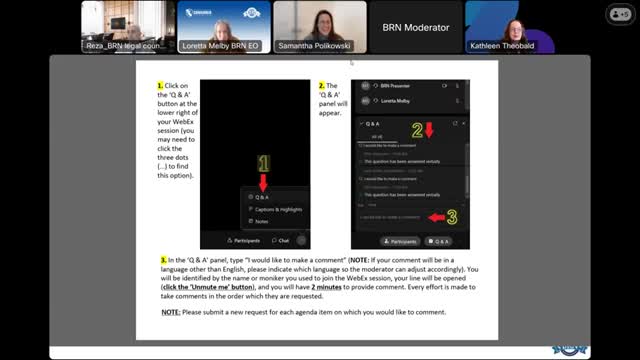BRN advisory committee reviews CRNA licensure pathway and moves to post clearer guidance online
Get AI-powered insights, summaries, and transcripts
Subscribe
Summary
The California Board of Registered Nursing(CBRN) Certified Registered Nurse Anesthetist Advisory Committee heard staff updates on licensure pathways for California, out-of-state and international CRNA graduates and approved its Aug. 15, 2024 meeting minutes.
The Certified Registered Nurse Anesthetist Advisory Committee of the California Board of Registered Nursing heard an update Jan. 16 on the licensure process for CRNAs, including proposed steps to streamline verification for out-of-state and international graduates and a potential electronic pathway to shorten issuance once national certification and education are verified.
The update focused on three licensure pathways: the California-specific process, an out-of-state (U.S.) process and an international-graduate process. BRN staff member Laurie (last name not specified) said foreign-trained graduates typically must obtain a U.S. registered-nurse license, enroll in and complete an accredited nurse anesthesia program and then pass the national certification exam administered by the National Board of Certification and Recertification of Nurse Anesthetists before receiving a CRNA certificate in California.
Laurie, BRN staff, told the committee that the board is exploring several process improvements to reduce delays in issuing CRNA certificates. Those include accepting electronic primary-source verification of national certification through the National Council of State Boards of Nursing(NCSBN) licensing service known as Nursys; accepting electronic transcripts from recognized clearinghouses; and, where appropriate, deferring to the national certifying bodyfor portions of primary-source verification to avoid duplicate checks.
"If the board agrees to defer to the national board certification for primary-source academic verification and we can receive those documents electronically, the CRNA license could be issued within 24 hours," Laurie said. She added the board is discussing agreements that would let staff receive a certified copy of a candidate's national certification and academic records electronically and attach them to an application.
Committee members and staff also discussed fraud risks tied to paper documents and the benefits of a single trusted electronic source. Laurie cited recent federal investigations, including Operation Nightingale coordinated with the U.S. Department of Health and Human Services and the FBI, as an example of why primary-source electronic records reduce fraud opportunities.
The committee heard that California currently requires national board certification as part of the CRNA pathway; Laurie said the BRN is working to align other advanced-practice nursing licensure processes with national certification requirements and to clarify where California policy differs from other states.
Kathleen Theobald and Samantha Polakowski, members of the committee's public engagement and website subcommittee, said they will prioritize publishing clear, user-friendly guidance on the CRNA website outlining the three licensure pathways and application steps.
Public comment during the meeting included one speaker, Emily Frank, identified as president of the "California Association of Nursing Anesthesiology," who thanked the committee for working on regulations and said the timing was appropriate with CRNA week approaching. "Your efforts are certainly making a real difference in our profession and the patients that we serve," she said.
Votes at a glance: The committee voted to approve the minutes from its Aug. 15, 2024 meeting. Chair Samantha Polakowski moved to approve the minutes; Karen Karp seconded. The motion passed with recorded votes in favor from Polakowski, Karp and Sandra Borty. The committee recorded the motion as passed.
The meeting, which staff noted had 52 participants, ran approximately 30 minutes. Committee members said the agenda items were adequately covered and they would reconvene subcommittee work on regulations, definitions and public engagement at subsequent meetings.
Future steps discussed included drafting proposed regulatory language to permit electronic verification flows, continuing meetings with the Department of Consumer Affairs regulatory attorney and the BRNexecutive officer to confirm statutory authority, and posting clear licensure pathway information on the CRNA advisory committee web page for prospective applicants.
The advisory committee adjourned at 9:37 a.m.
